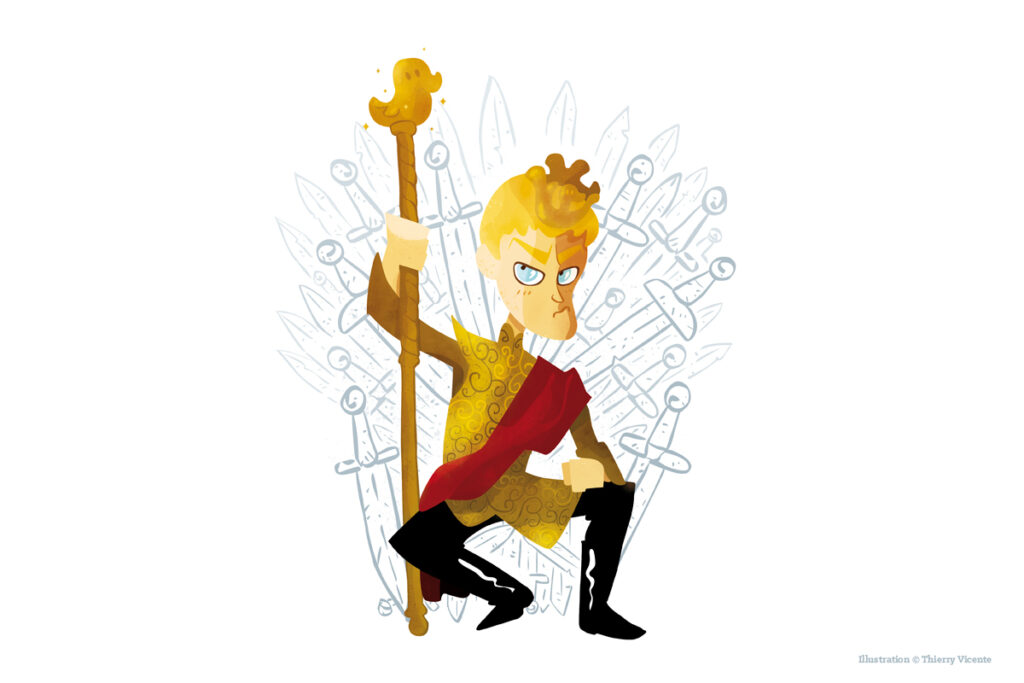[LUM#4] When children take power
Among all the forms that domestic violence can take, there is one that remains taboo, little known even to specialists: children who bully their parents. In Montpellier, doctors are coming to their aid.

They are mistreated, terrorized, and even abused by... their own children. It's a nightmare for these parents, who no longer know how to regain control over their offspring. To help them escape this vicious cycle, Montpellier University Hospital has set up unique consultations for dealing with tyrannical children. These are not simply unruly brats, but children who have literally taken over the home. "We talk about tyrannical children when the family hierarchy is no longer respected. That is, when parents no longer have the ability to make decisions or set the educational rules they want in the home," explains Nathalie Franc. To the point that these parents feel like they are "living in their child's home"...
These situations are rarely discussed, yet they can be extremely violent. "There is a lot of aggression, both verbal and physical, directed at parents. These children can have tantrums during which they hit or break objects, preferably those that their parents are attached to. The older ones even threaten to run away or commit suicide," says the child psychiatrist. All the parents seen by the child and adolescent psychological medicine service make the same observation: they are afraid of their child.
"We live with our children."
But how did these families end up in this situation? "There is always an initial child psychiatric problem: anxiety disorder, hyperactivity, autism, obsessive-compulsive disorder,"explains Nathalie Franc. Studies also show that the risk increases when the child is the focus of their parents' emotional investment: the eldest child, a late arrival, an only child, an adopted child, or a child who was ill when they were young. Parents, for their part, are often particularly sensitive to their child's needs and attentive to their education. "The people we follow in the group are psychologists, educators, or teachers; they just want to do the rightthing." Sometimes too much so.
So, to help their children cope with their difficulties, parents adapt, or even "over-adapt." Some stop working so as not to leave an anxious child alone, while others allow themselves to be drawn into the obsessive behaviors of their children suffering from OCD. "One of the mothers in the group has to tuck in the blanket in a very specific way every night and then say a specific phrase. If she makes a mistake in her child's ritual, he throws a tantrum and forces her to start over," says the child psychiatrist.
Parents at their wits' end
For specialists, this over-adaptation on the part of parents could well be the root cause of tyranny. "This behavior gives the child the impression that they have the power to decide," explains Nathalie Franc. It also perpetuates the problem in the long term because by preventing the child from confronting their difficulties, we are not encouraging them to find solutions on their own." Little by little, tyranny sets in, insidiously. "All the more insidiously because the child shows no behavioral problems outside the home." Little angels at school or in society who turn out to be little devils in the privacy of the family circle...
"This is one of the major difficulties: since these children behave completely normally outside the home, it delays identification and treatment,"says Nathalie Franc. As a result, parents arrive at consultations depressed and feeling "at the end of their rope." "They have sometimes neglected their professional, personal, and social lives, isolating themselves and expressing feelings of guilt and shame." This shame drives them to hide the seriousness of the situation from those around them, hinting at a "difficult" child but not daring to describe the reality of their daily lives.
Come out of hiding
"The first thing we advise parents to do is to break the silence and talk to their loved ones, who will form a real support network," explains the child psychiatrist. This provides support for parents, but also acts as a lever to change the child's behavior: "If they know that those around them are aware of the situation, they become sensitive to this outside perspective and lose power."
In the survival kit for parents of tyrannical children, doctors also emphasize the need to learn how to defuse crises. "Most of the time, parents oscillate between total opposition and over-explanation, neither of which works. We encourage them to find a third way to resolve conflicts. " To help them, specialists advocate nonviolent resistance, a behavioral approach inspired by Gandhi. "For example, we advise them to react with a delay to give their response more force."
And does it work? "We don't yet have enough perspective to evaluate this approach over time, "explains Nathalie Franc. "But what is certain is that the parents who participate in these sessions are already feeling better." First, because they realize that they are not the only ones experiencing these situations, which lightens the burden of shame and guilt a little. Secondly, because they regain confidence in their parenting skills. This is an essential ingredient for changing the dynamic at home and, little by little, allowing everyone to find their rightful place.
Find UM podcasts now available on your favorite platform (Spotify, Deezer, Apple Podcasts, Amazon Music, etc.).